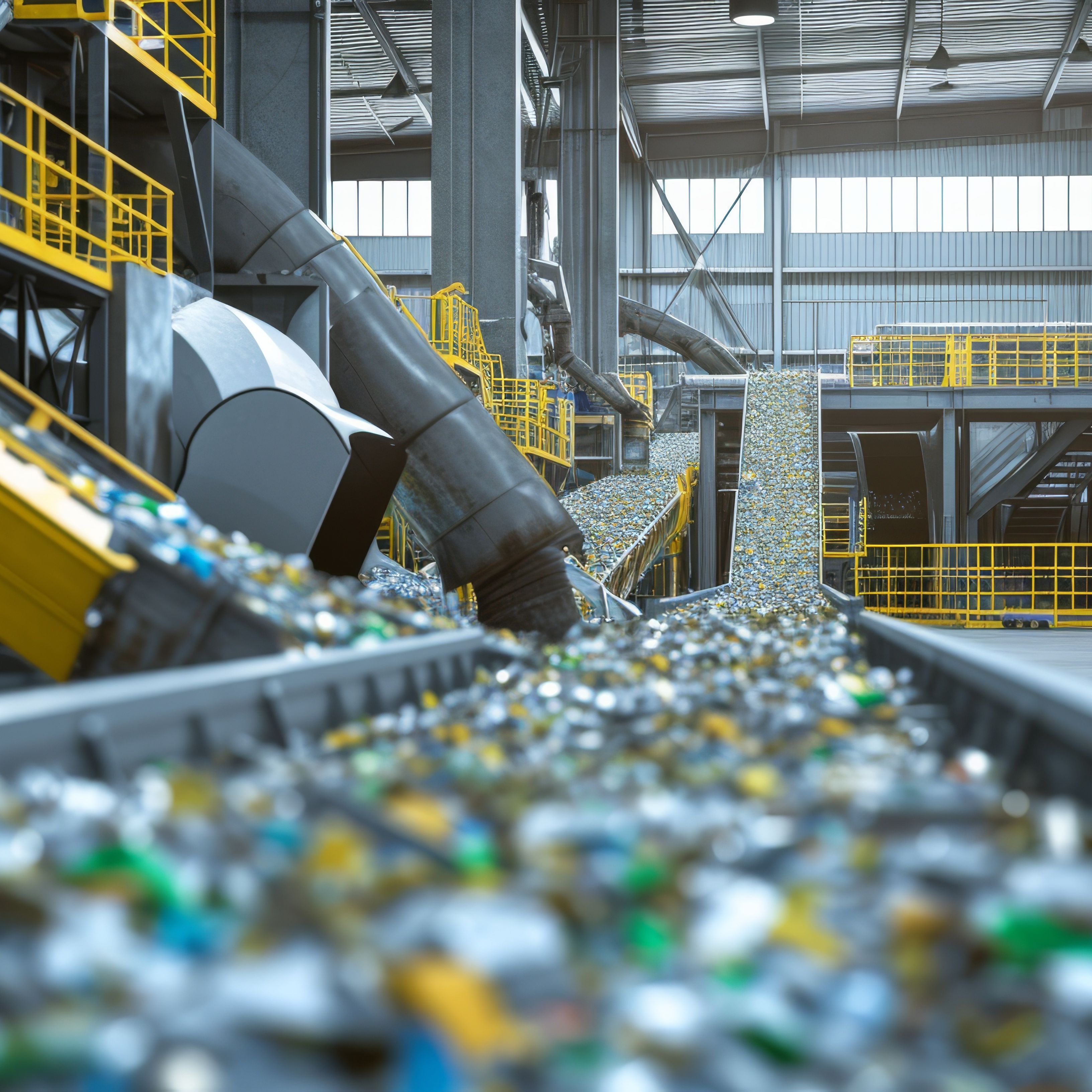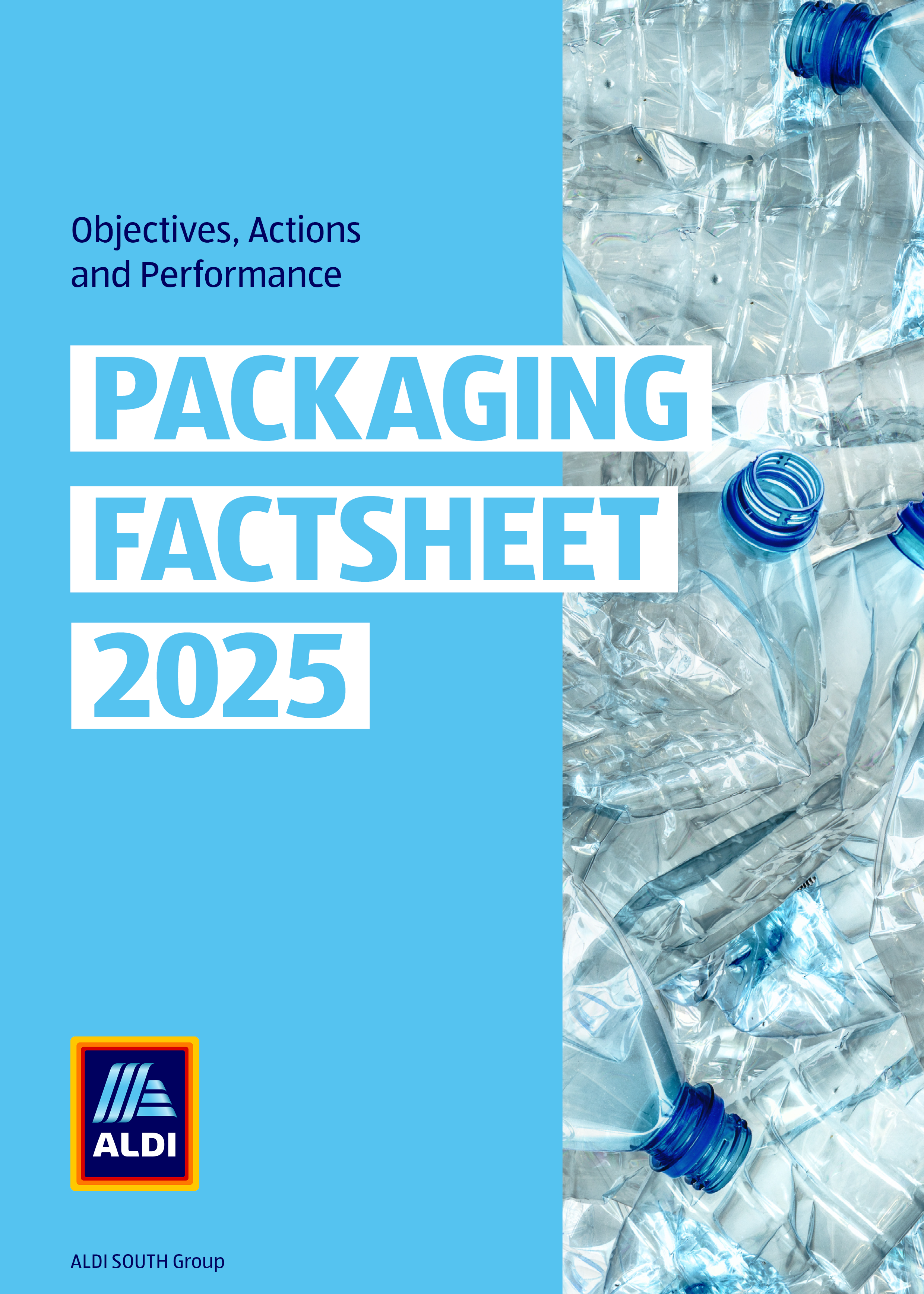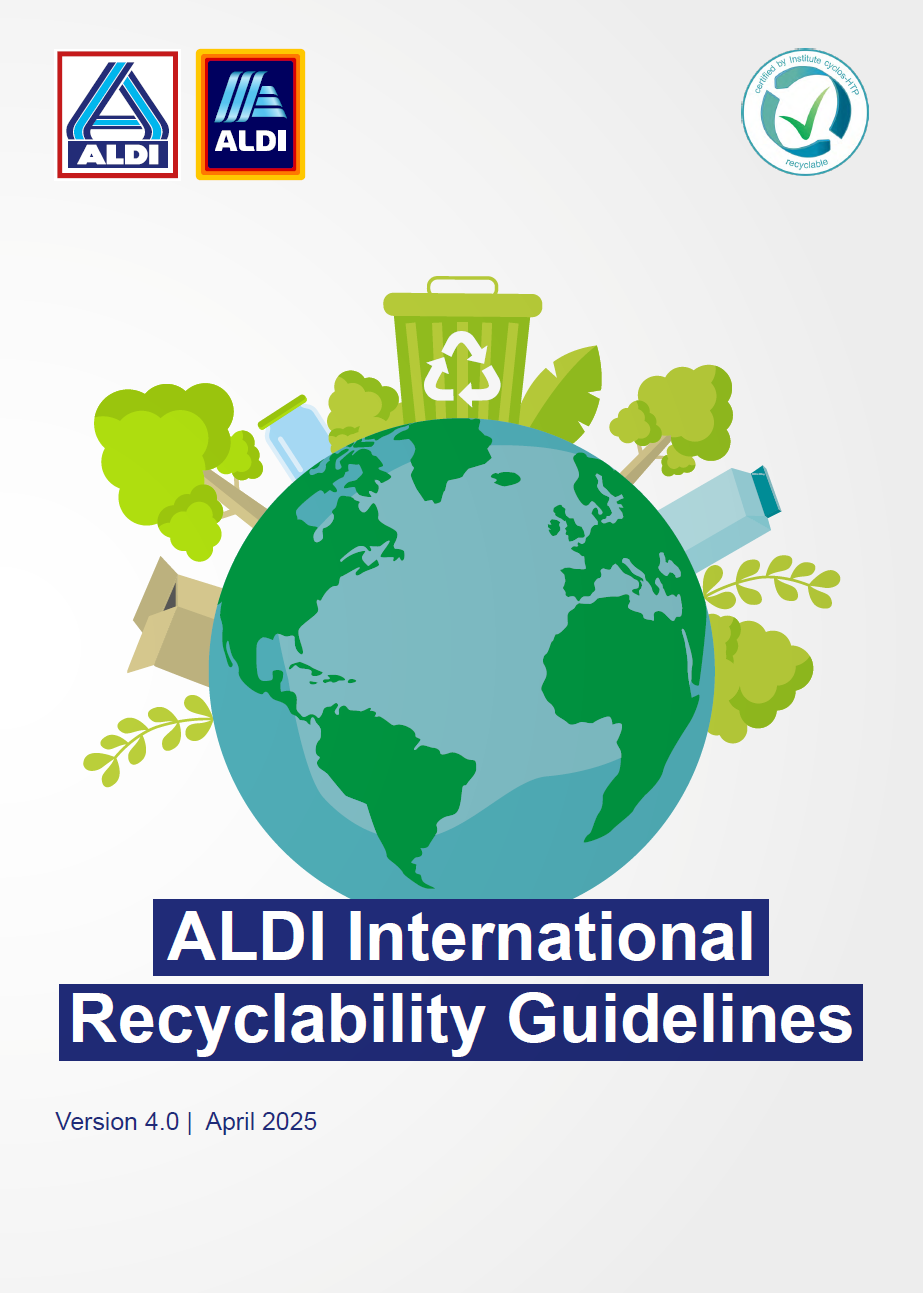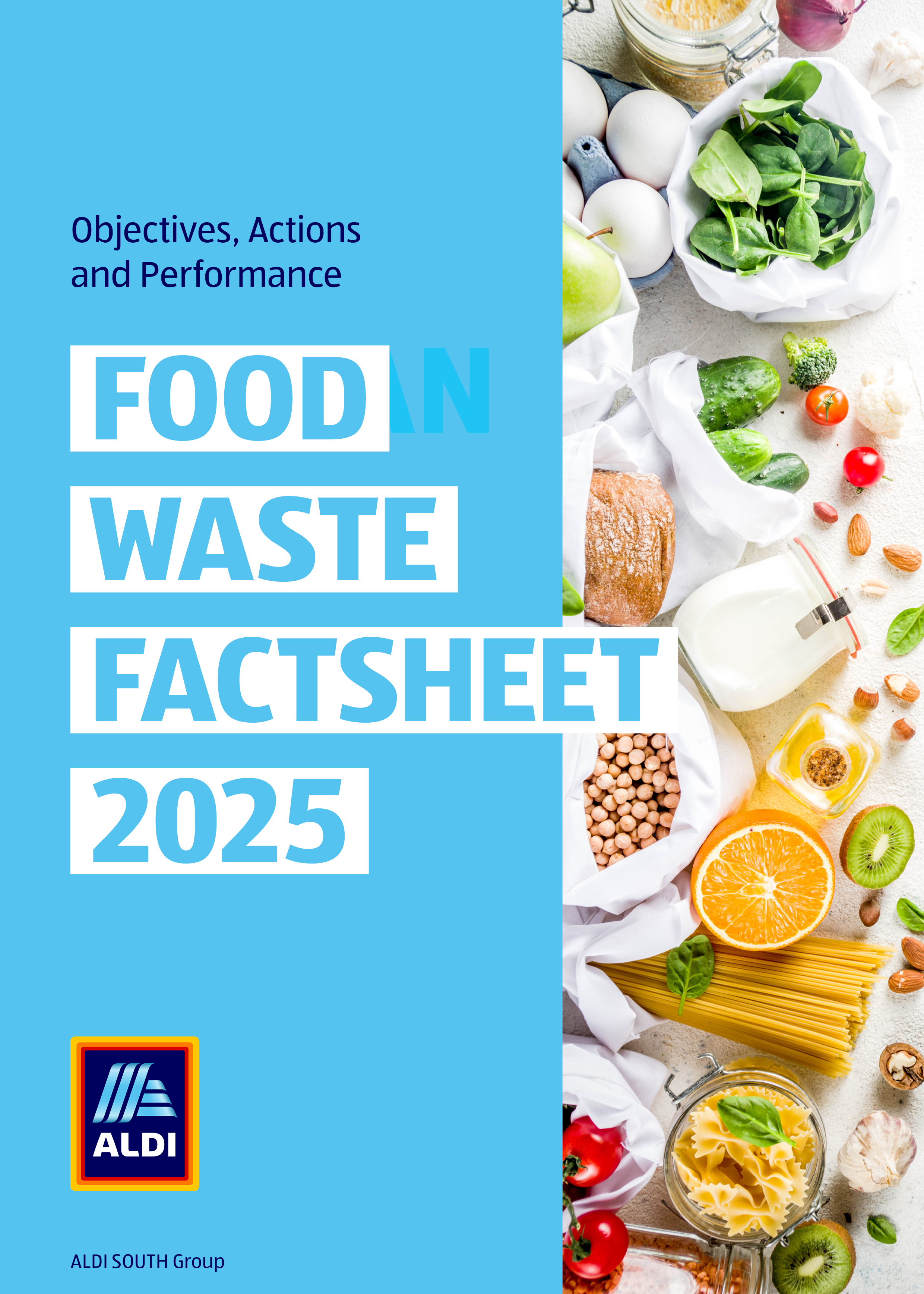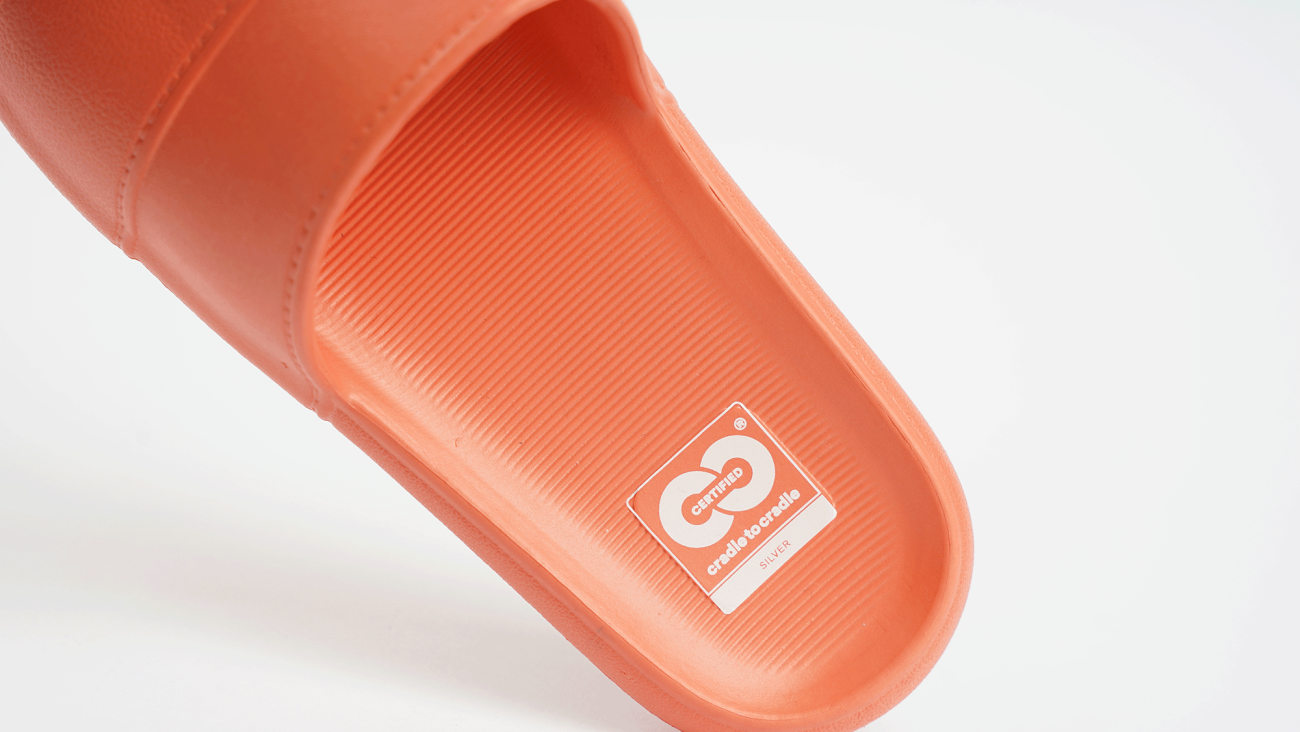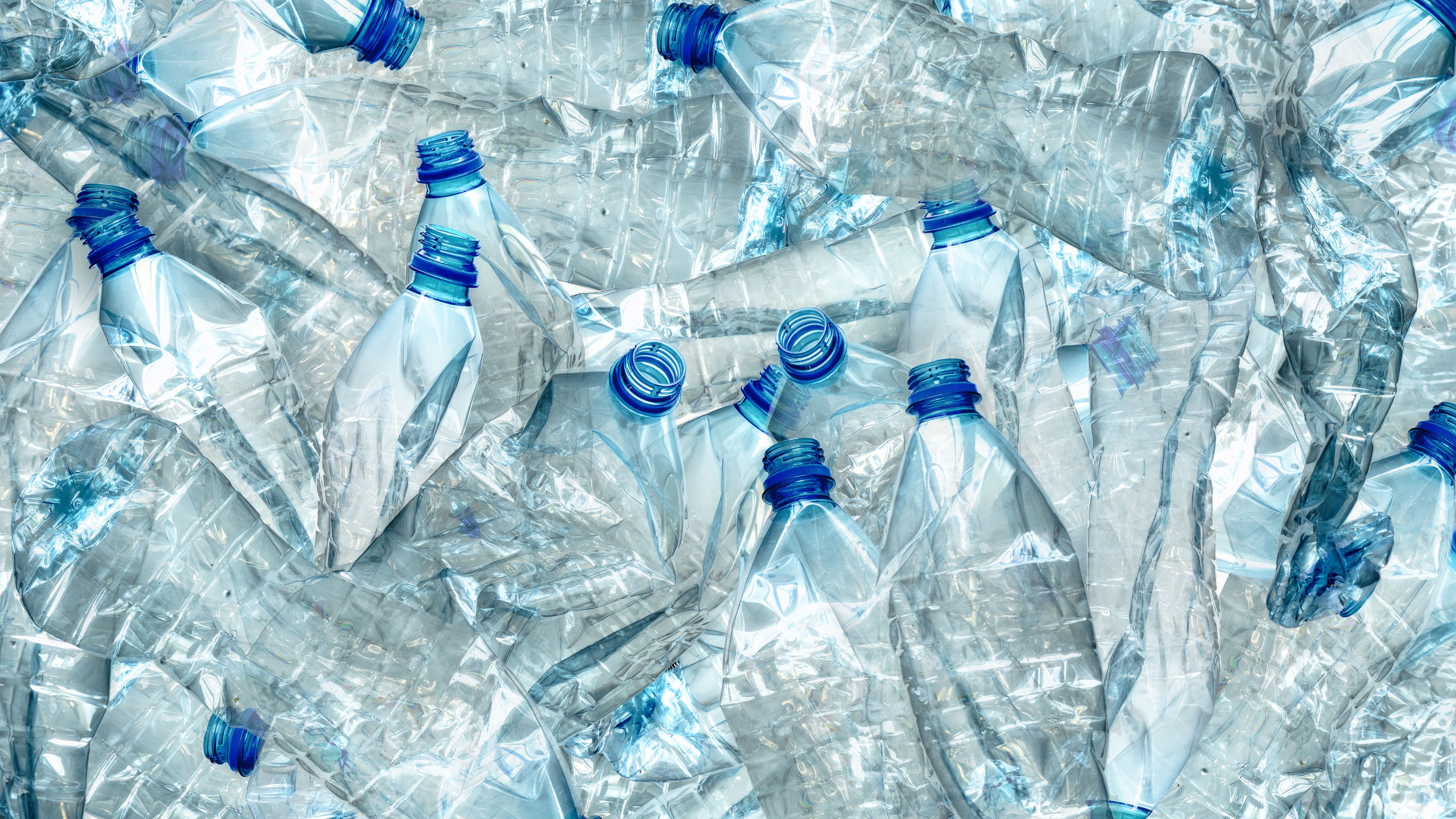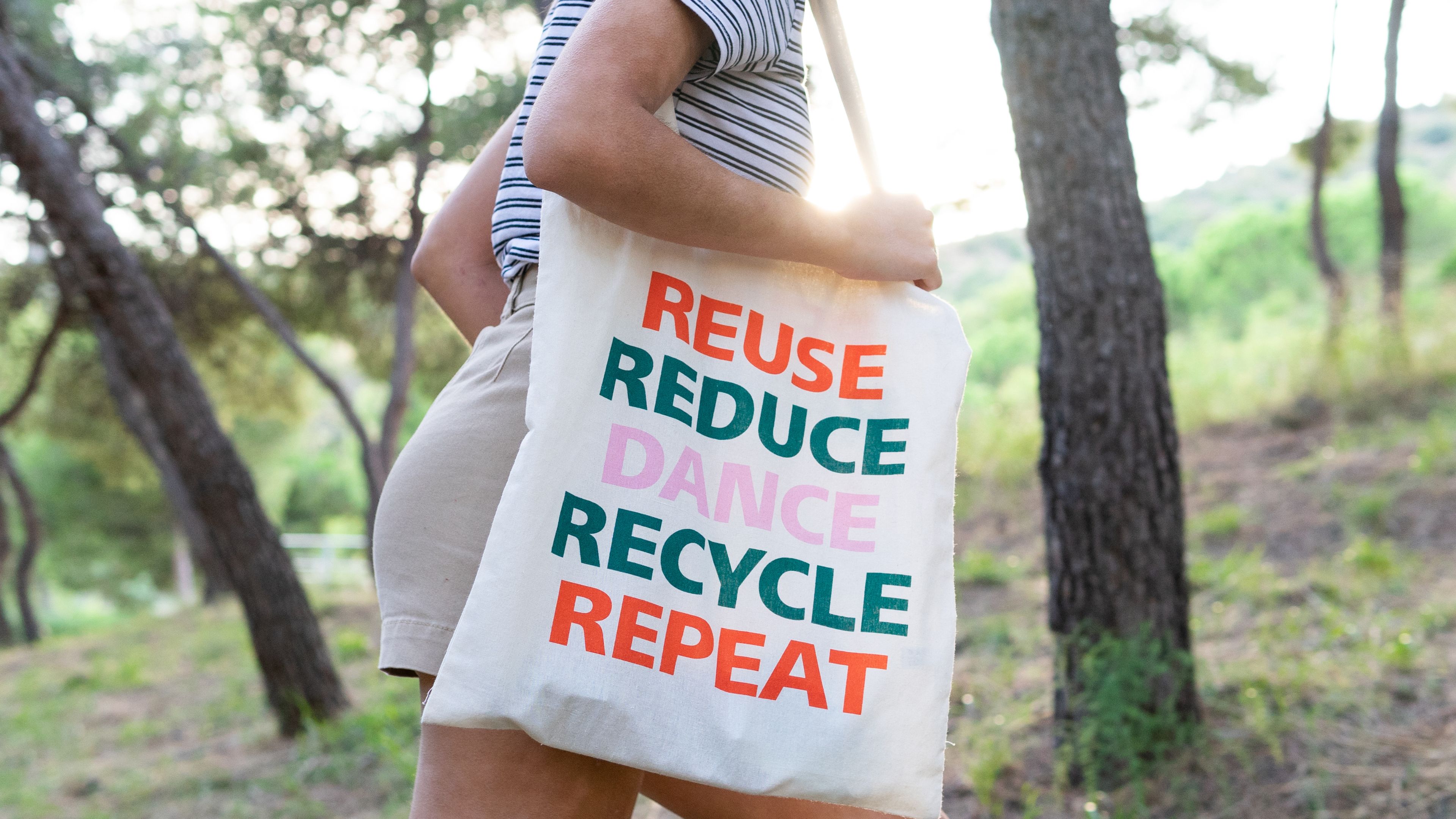
By moving from a throwaway culture to a circular economy, we can produce less waste. It allows us to use resources more efficiently, reduce the consumption of raw materials, and to recover waste by recycling. The ALDI SOUTH Group will take an end-to-end approach to sell more products that support a circular economy.
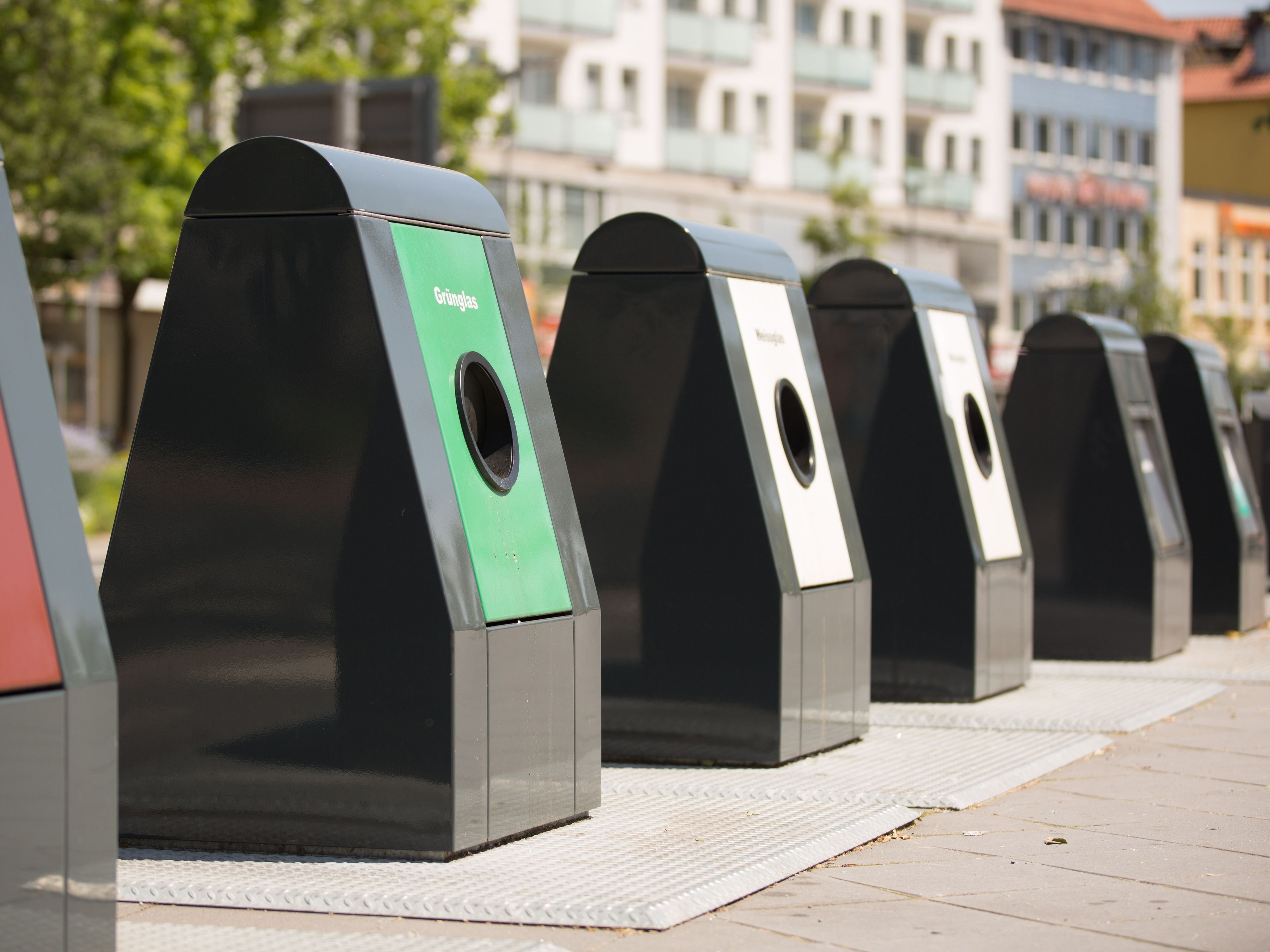
Towards a circular economy
People are buying, using and disposing of products at a rate that is outpacing the planet's ability to provide the necessary raw materials. The ALDI SOUTH Group understands the benefits of transitioning from a throwaway culture to a circular economy as this will help us to work towards net-zero emissions.
Circularity is about designing products and packaging in a sustainable way to keep their materials in circulation for as long as possible. When a product or its packaging reaches the end of its life, the materials are rarely reused and often end up in landfill. The ALDI SOUTH Group is working with its business partners to ensure it offers products and packaging that can be used and reused to reduce waste and support a circular economy.
How does the ALDI SOUTH Group make change?
As a major retailer, we want to drive system change and help shape public policy to unlock the full potential of the circular economy model. The ALDI SOUTH Group has adopted the following strategies that support the transition to a circular economy:
- To make all own-brand packaging reusable, recyclable or compostable by 2025.
- To divert 90% of global operational and food waste from landfill and incineration by end 2030.
- By integrating circular economy and eco-design principles into our processes and products, we aim to reduce waste throughout our value chain.
We have set ambitious goals to increase the material efficiency and circularity of ALDI SOUTH Group's own-brand product packaging. Legislation will help us drive the transition to a circular economy and will have a significant impact on manufacturers, suppliers, retailers and consumers.
For instance, in collaboration with ALDI Nord, the AIM - European Brands Association, and Alliance to End Plastic Waste, we're integrating digital watermarking technology to enhance the sorting and recycling of plastics. ALDI has implemented digital watermarks to a selection of our MILSANI yoghurt and kefir products offered in Germany. The watermarks are made up of tiny imperceptible codes on the packaging that can be detected and decoded within waste sorting facilities to improve the recycling process.
We have set ambitious goals to increase the material efficiency and circularity of ALDI SOUTH Group's own-brand product packaging. Legislation will help us drive the transition to a circular economy and will have a significant impact on manufacturers, suppliers, retailers and consumers.
For instance, in collaboration with ALDI Nord, the AIM - European Brands Association, and Alliance to End Plastic Waste, we're integrating digital watermarking technology to enhance the sorting and recycling of plastics. ALDI has implemented digital watermarks to a selection of our MILSANI yoghurt and kefir products offered in Germany. The watermarks are made up of tiny imperceptible codes on the packaging that can be detected and decoded within waste sorting facilities to improve the recycling process.
Designing products for a circular economy
Circularity is about much more than waste separation and recycling; it commences with the initial design of a product to ensure durability, modularity, repairability, and recyclability. Up to 80% of a product’s environmental impacts can be determined at the design phase. As an own-brand retailer, we can influence the circularity of our products right from the design stage.
We are actively working to design more circular products by taking up more recycled materials, reducing virgin materials in products and packaging, and avoiding blended fibres within our textiles range. Our efforts include the use of bio-based materials, and we are designing products with a closed-loop approach.
Best practice: ALDI launches Cradle to Cradle Certified® EVA shoe
In the EU, 2.5 billion pairs of shoes are thrown away every year. Customers can now support the circular economy by purchasing the Cradle to Cradle Certified® unisex slip-on EVA shoe. ALDI SÜD Germany, ISA-TRAESKO and the Cradle to Cradle Certified Products Program has launched a slip-on shoe that can be returned to the manufacturer, fully recycled, and transformed into something entirely new.
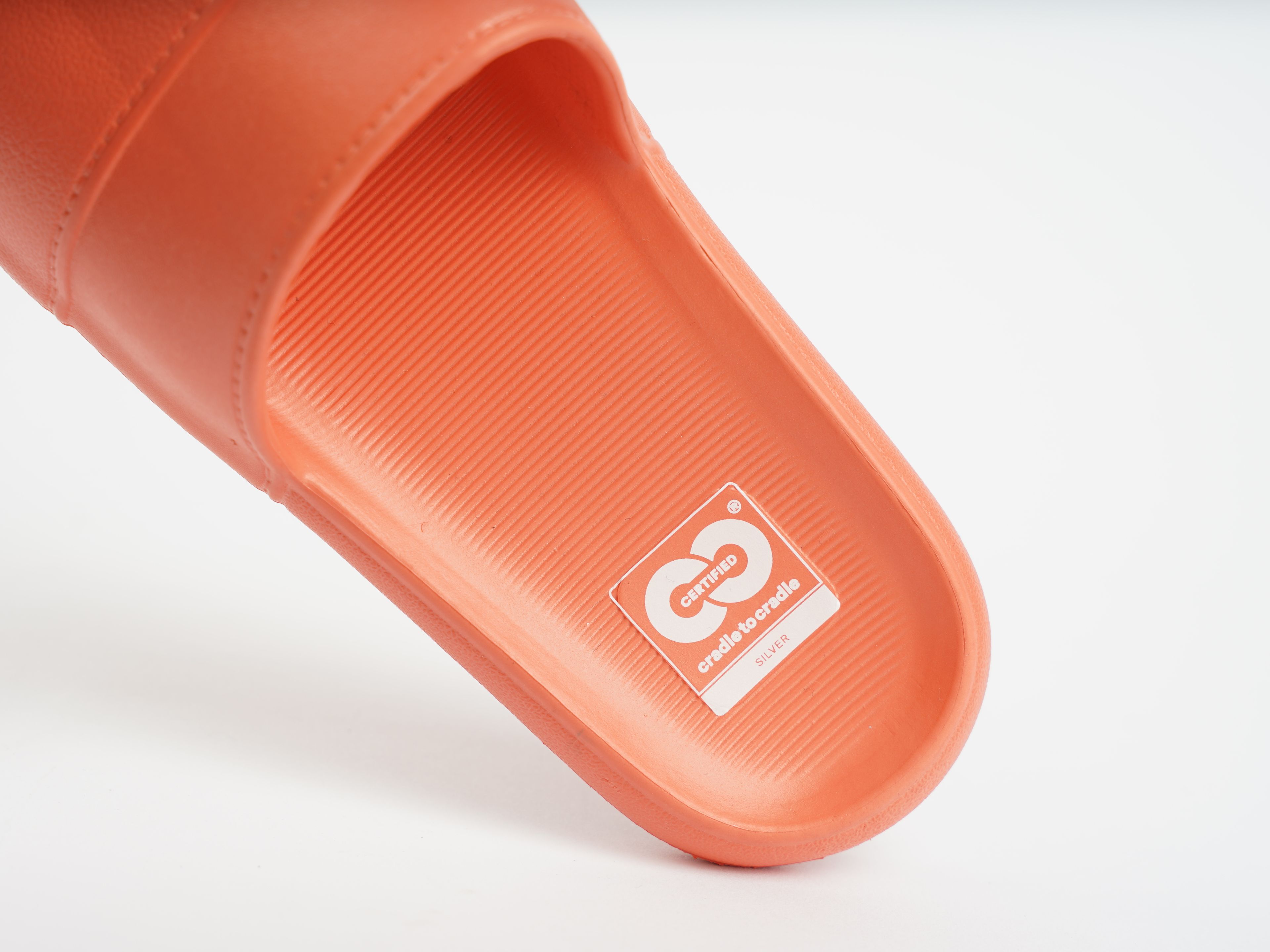
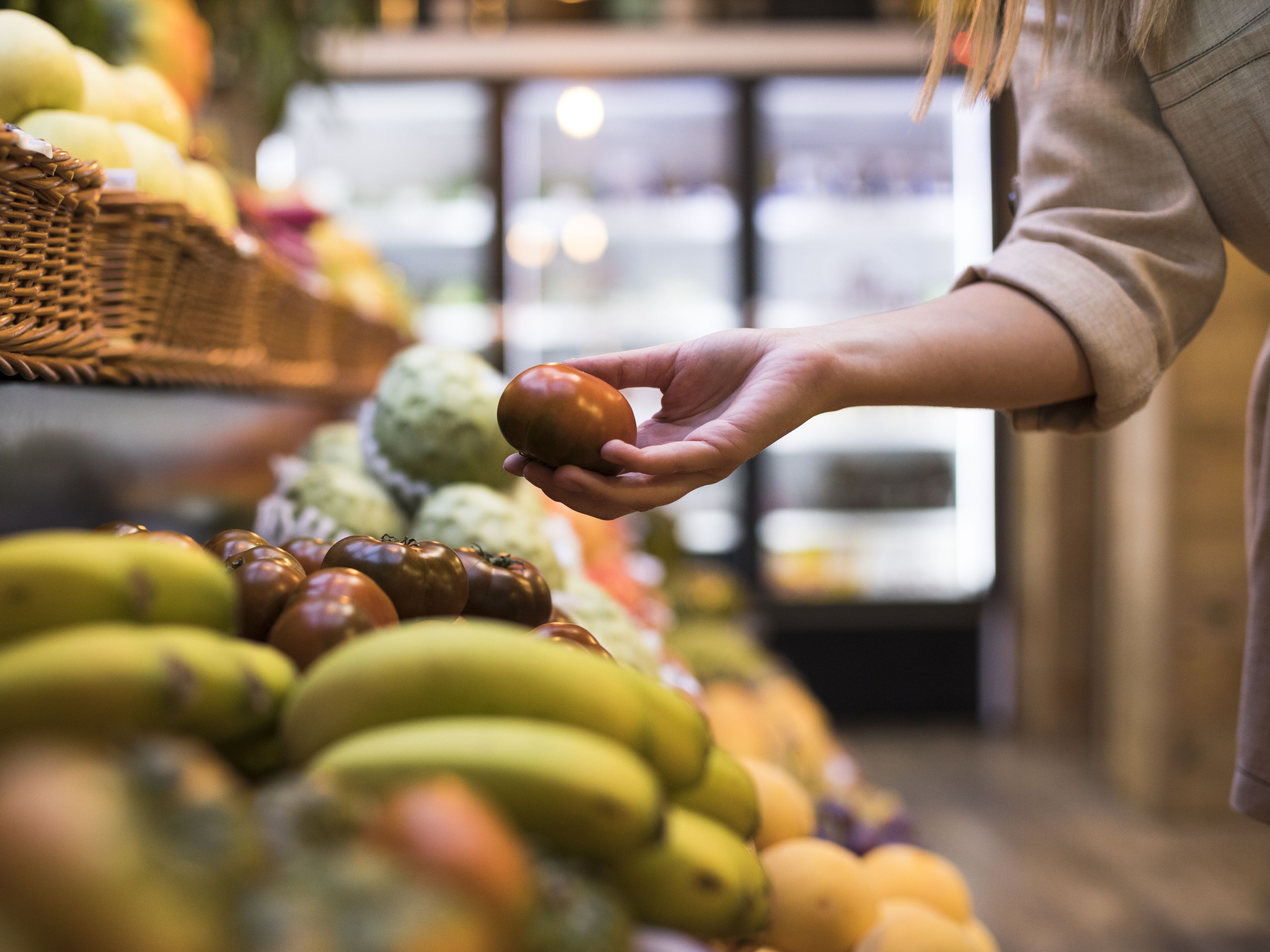
Turning operational and food waste into opportunities
We want to take a step towards a future where nothing is wasted. The future of food will include products that are circular, designed to be healthy for both people and the planet. Our long-term actions will include innovative solutions and partnerships with bio-generators to convert food surplus into pet food, fertiliser, and other forms of bioenergy.
Within our own operations, we are working towards circular solutions for limiting waste. The ALDI SOUTH Group generates a significant amount of food waste each year, which provides ample opportunity for recycling and reuse. We work with waste management and recycling companies to close the resource loop, and reuse and recycle as much as possible.
Find out more about our policies, initiatives, and projects for circularity. The Packaging Factsheet provides information about the ALDI SOUTH Group for benchmarking inquiries.
Source: *European Commission, **C2C Products Innovation Institute
